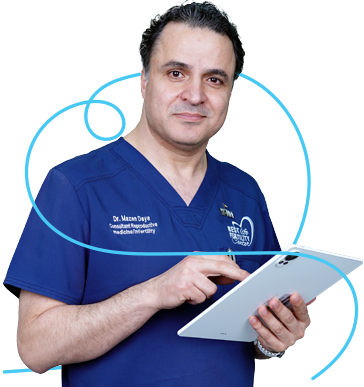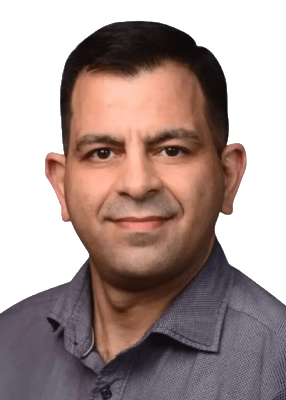
Explore expert-written articles on IVF, fertility treatments, infertility support, and pregnancy tips at Bestivf Blog. We share valuable insights, emotional guidance, and success stories to help you make informed decisions about your parenthood journey. From understanding IVF procedures and fertility tips to learning about the latest reproductive technologies, our blog is your trusted resource for accurate, up-to-date information.
Starting a family is one of life’s most cherished dreams — but for some couples, the path to parenthood
For many couples struggling with infertility, in vitro fertilization (IVF) offers new hope. But while IVF can help overcome
Fertility challenges can be emotionally and physically draining for couples who dream of becoming parents. While many assume infertility
Introduction Dubai Marina, with its iconic skyline and vibrant community, is not only one of the city’s most desirable
Summary Diminished ovarian reserve (DOR) is a condition where a woman’s ovaries lose egg quality and quantity earlier than
For many couples, starting a family is one of life’s most meaningful goals. However, when conception does not happen
Starting a family is a dream for many couples, but the path can sometimes come with unexpected challenges. For
When a couple is facing difficulty conceiving, the focus often turns to female fertility. However, male infertility accounts for
Obstructive azoospermia is a common yet treatable cause of male infertility. This guide breaks down the condition, its causes,
Obstructive azoospermia is a common cause of male infertility where sperm production is normal, but a blockage prevents sperm
Male infertility can be a deeply emotional and complex issue, affecting nearly half of all couples who face difficulties
With the increasing demand for assisted reproductive treatments, Dubai has emerged as a hub for world-class fertility care. Couples
Infertility affects millions of couples worldwide—and contrary to popular belief, male infertility accounts for nearly half of all infertility
Family planning is a deeply personal journey, and for many couples, the concept of family balancing plays a significant
In today’s fast-paced world, more women are looking for ways to preserve their fertility until they feel ready to


Your dream of parenthood deserves the right support. At Best Life Fertility, our
experts are here to walk with you every step of the way—combining advanced fertility
treatments with compassionate care.

Dr. Carolina Arboleya is an obstetrician and gynecologist, specializing in assisted reproduction (IVF). She earned her specialty at the prestigious Hospital Universitario La Paz in Madrid, Spain, and completed a master’s in Assisted Reproduction and Fertility at the Technological University TECH. She is also committed to continuous professional development, regularly participating in conferences advanced training to stay at the forefront of fertility medicine.
With over five years of experience working with patients facing infertility, she is skilled in both diagnostic and surgical fertility procedures. She has a particular interest in treating unexplained infertility and endometriosis, providing care with precision and compassion.
Dr. Arboleya is fluent in Spanish, English, and French, and has basic knowledge of Portuguese and Italian.

Over 10 years of nursing experience
Bachelor of Science in Nursing from GSL College of Nursing
Employee of the Month Award at Saudi German Hospital
Languages: English/Indian/Malayalam






Clinical embryologist with hands-on experience in ovum pick-up, denudation, ICSI, cryopreservation, embryo transfer, and lab quality control
Trained in core assisted reproductive techniques and embryology lab operations
Skilled in embryology lab procedures ensuring quality assurance and optimal outcomes
Areas of expertise include Embryology, ICSI, Cryopreservation, Embryo Transfer, and IVF Lab Management
Languages: English, Arabic

Certified anesthesia technician with a diploma in medical sciences from Damascus University
Over 6 years of experience assisting anesthesiologists in the operating room with pre-anesthesia procedures and providing general/regional anesthesia
Responsible for anesthesia records, patient positioning during spinal and epidural anesthesia, and ensuring patient safety before, during, and after anesthesia
Experienced in intravascular catheterization and supporting CPR in the ICU with a component support team
Familiar with a variety of equipment, including the Boyle anesthesia machine, injection pumps, and fiber optic bronchoscopes
Excellent communication skills, compassionate, and dedicated to continuous learning and growth
Languages: Arabic, English

Over 20 years of experience in anesthesiology
Specialization in general anesthesia, regional anesthesia, spine, epidural, fertility, and intensive care patient management
Expertise in patient care and safety, making him a leader in the field of anesthesiology
Languages: English, Russian, Arabic






Master’s Degree in Biotechnology in Human Assisted Reproduction and Embryology from the University of Valencia, Spain
Over 9 years of experience in assisted fertilization technology, specializing in embryology and performing advanced IVF procedures abroad
Expertise in quality control in embryology and andrology laboratories
Experienced in management and communication with fertility patients
Languages: Russian, Arabic, English

Dr. Mazen is a renowned fertility specialist and expert in Reproductive Endocrinology and Infertility, with over two decades of experience in the field. His deep knowledge and compassionate approach have made him one of the most trusted names in fertility care.
He is widely recognized as one of the top IVF doctors in Dubai, offering advanced reproductive treatments tailored to each patient’s unique needs. Dr. Mazen combines cutting-edge technology with personalized care to maximize success rates and ensure the best outcomes.
Committed to helping couples fulfill their dreams of parenthood, Dr. Mazen has built a strong reputation for excellence, empathy, and dedication. His clinic is a destination for patients seeking expert guidance and world-class fertility solutions.
Education:
Saint Petersburg I.P. Pavlov State Medical University, Russia (Primary Medical Qualification – PMQ)
Russian Academy for Medical Sciences, (Specialty Training and PhD)